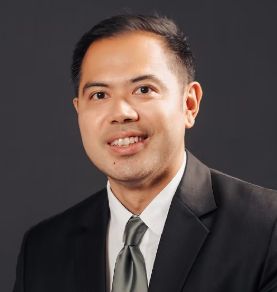Greg Joseph S.J. Tiongco has been in the practice of law for over 18 years. He has extensive experience in Corporate Law including Acquisitions and Mergers, Disputes and Litigation, Labor & Management Relations Law, and Data Privacy Law and Compliance. He served as counsel for one of the biggest acquisition of government assets in the Philippines. He also served as counsel for the entry of the third telecom player in the Philippines. Greg is also corporate counsel to a number of Philippine conglomerates, multinationals, and internationally as well as locally listed companies. Pursuant to this, he has worked with different international law Firms to service the Firm’s international clients.
Greg has been awarded and recognized as a top 10 Clients’ Choice lawyers in the Philippines (2021 and 2022) and top 50 Technology, Media and Telecommunications lawyers in Asia by the prestigious Asian Legal Business (Thomson Reuters) for work done for their clients. For 2022, Greg was also recognized a one of the Top 50 Super Disputes Lawyers in Asia.
A member of the Philippine Bar, Greg graduated with Honors garnering a silver medal from the Ateneo de Manila University School of Law.
Greg has been appointed as a Commissioner for the Integrated Bar of the Philippines since 2019. Greg is a professor at the Manuel L. Quezon Law School where he teaches Fintech law. He is an accredited Arbitrator of the Philippine Dispute Resolution Center, Inc. He also previously served as Special Legal Counsel for the Presidential Commission on Good Governance from 2011 to 2016 and was Legal Consultant to Mandaue City, Province of Cebu.
Greg is an active member of TrustLaw, the Thomson Reuters Foundation’s global pro bono legal service. He continues to work with several high-impact NGOs and social enterprises in furtherance of social and environmental change. He is also a member of PILnet – a global non-governmental organization that creates opportunities for social change through collaborations of public interest and private lawyers who understand how law works when it serves the interests of the privileged and then it uses that knowledge to strengthen civil society and the communities they serve.
